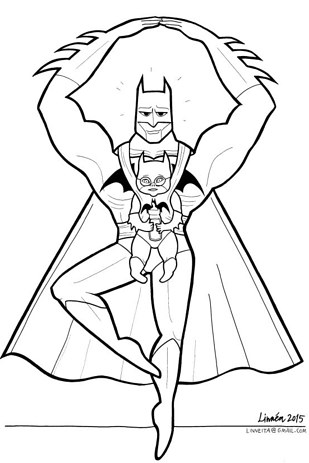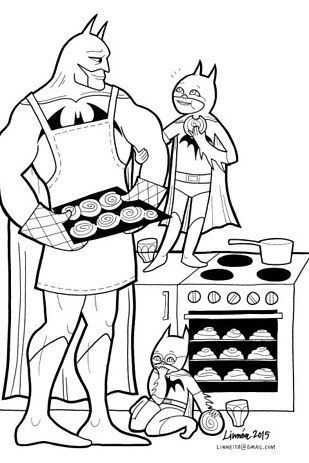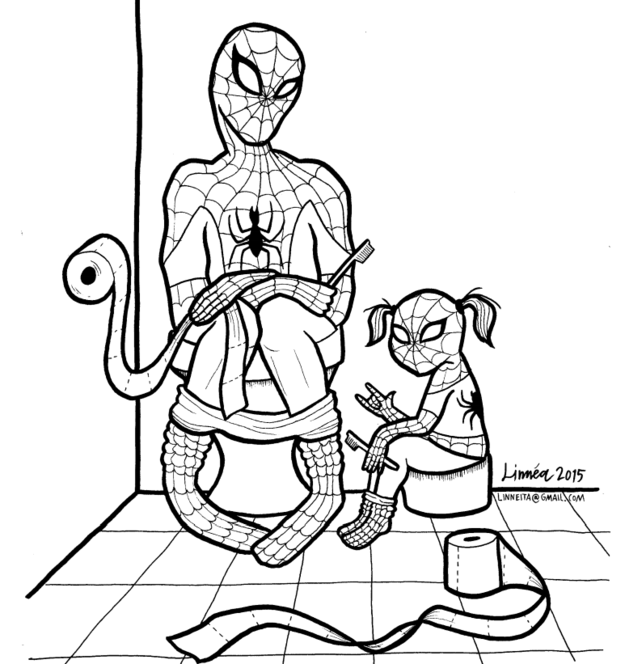Swedish illustrator and cartoonist Linnéa Johansson decided to use her talents for a different purpose when her three-year-old son tried to convince himself to stop crying. “Superheroes don’t cry,” he had told her.
At that moment she was inspired to change her son’s perception of gender roles by creating a ‘special’ superhero coloring book.
The book captures superheroes doing what we see many men and dads doing today, baking cookies, dancing, wearing baby carriers and potty training with their kids. It’s a great lesson for boys that being a man isn’t just about being rough-and-tumble, it’s also about being compassionate, nurturing and loving. It’s an important lesson to teach boys that it’s ok to be in touch with their feelings. It’s ok to cry.
“Boys learn from their role models to act tough and aggressive and that showing vulnerability or emotion is equivalent to being weak or ‘being a girl’ (which is considered an insult in today’s society),” Johansson wrote on her blog. “They are taught through these role models to ‘man up’ and that ‘boys don’t cry.’ Girls on the other hand learn early on that their greatest asset is to be beautiful….I had to take action.”
Johansson is also working on a book for girls to help combat girl stereotypes!








Oh, for Pete’s sake! While this mother’s efforts are indeed commendable, maybe she should monitor the amount of time her son spends watching superheros on TV and in video games. To me, that’s the real problem. The same is basically true for girls. Children minds mirror whatever brain-food you give them. A steady diet of Barbie and sexy cartoon power girls is bound to have an impact if they watch it all the time. (Just FYI: The artwork, while fanciful, needs some fact-checking. For example, male ballet dancers don’t normally do pointe work… unless perhaps they’re members of Les Ballets Trockadero http://trockadero.org/. And safety, of course, would prevent them from carrying an infant in a forward-facing position, especially on pointe. The forward-facing position for an infant is never recommended because the baby’s legs extend straight down, instead being supported at a 90 degree angle, which prevents hip dysplasia. How to let your children know that it’s OK to cry? Whether male of female, show them respect for what they have to say from the moment they come out of the womb. Don’t let them “cry-it-out.” Listen to their stories. Have contingency with them when they coo and play. If they are sad, allow them to have those feelings without recrimination. Offer empathy, eye-contact and physical touch. The problem with kids feeling that it’s not OK to cry starts with parents. Not the kids.
Comments are closed.